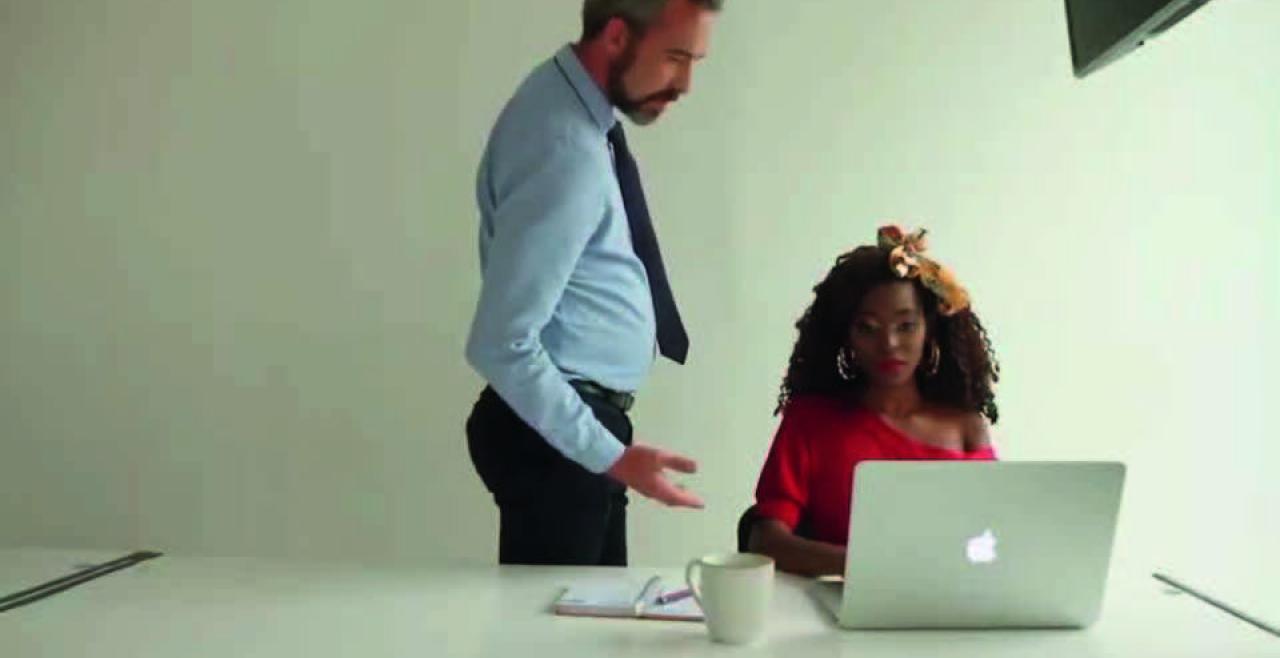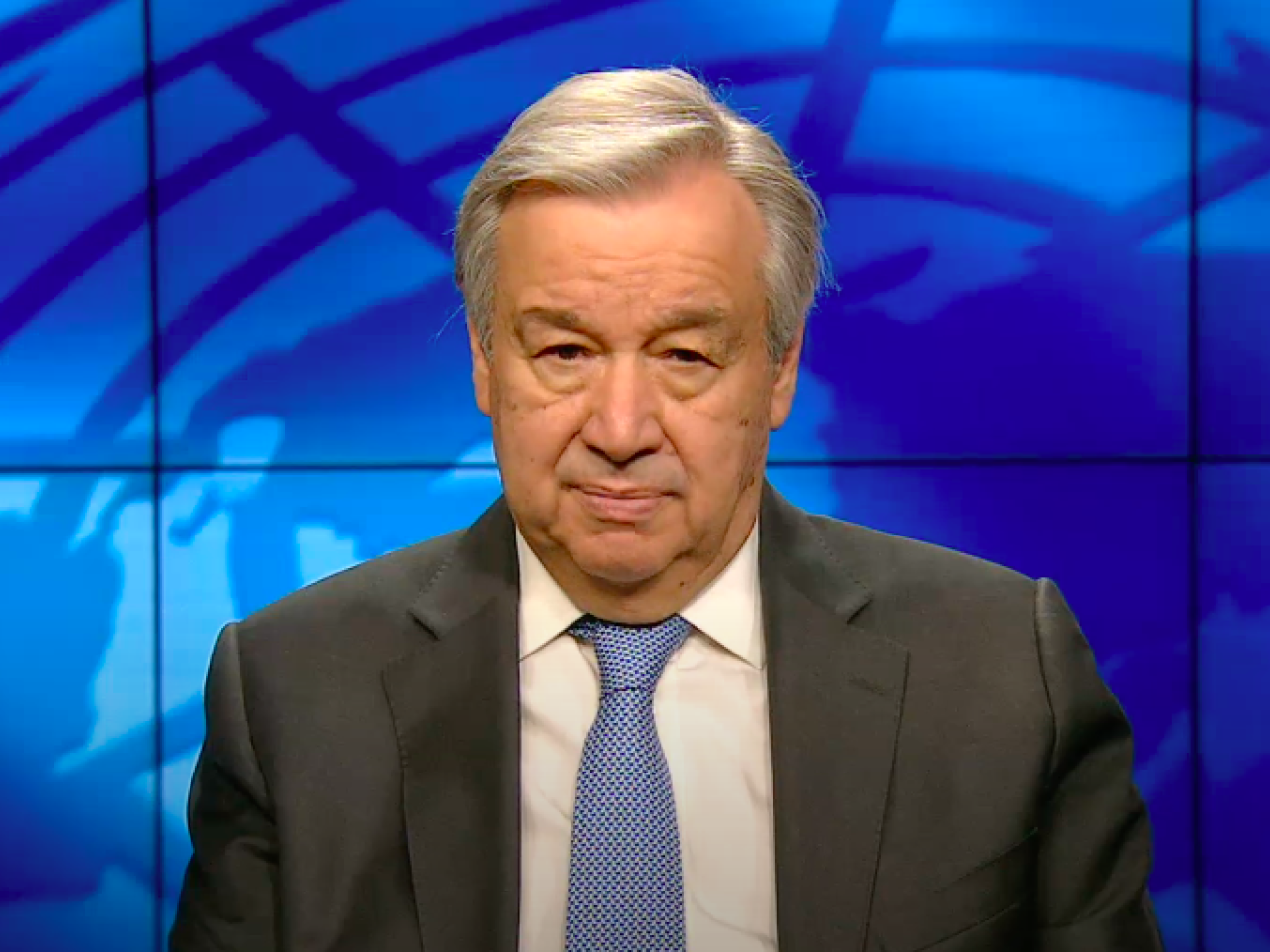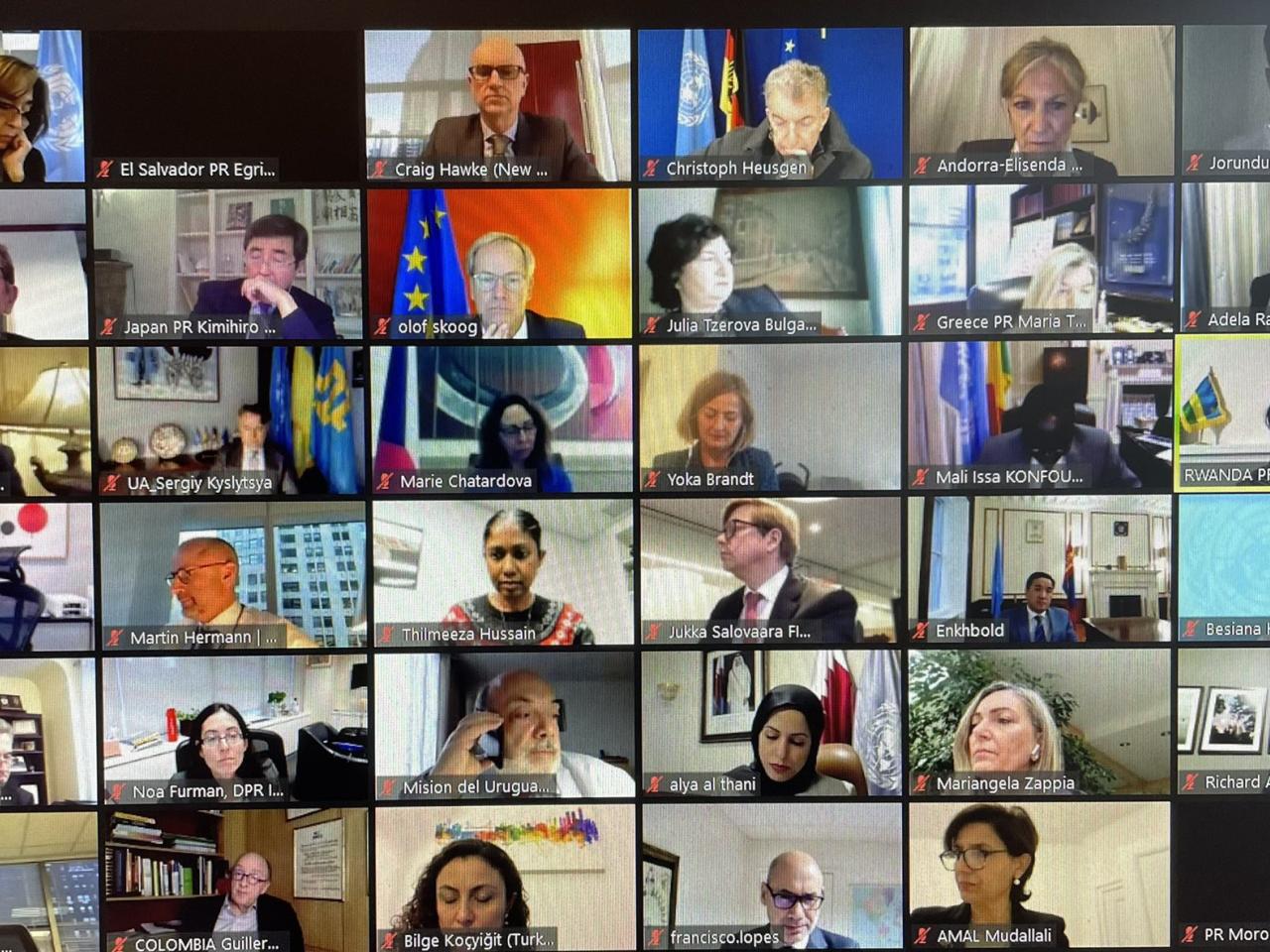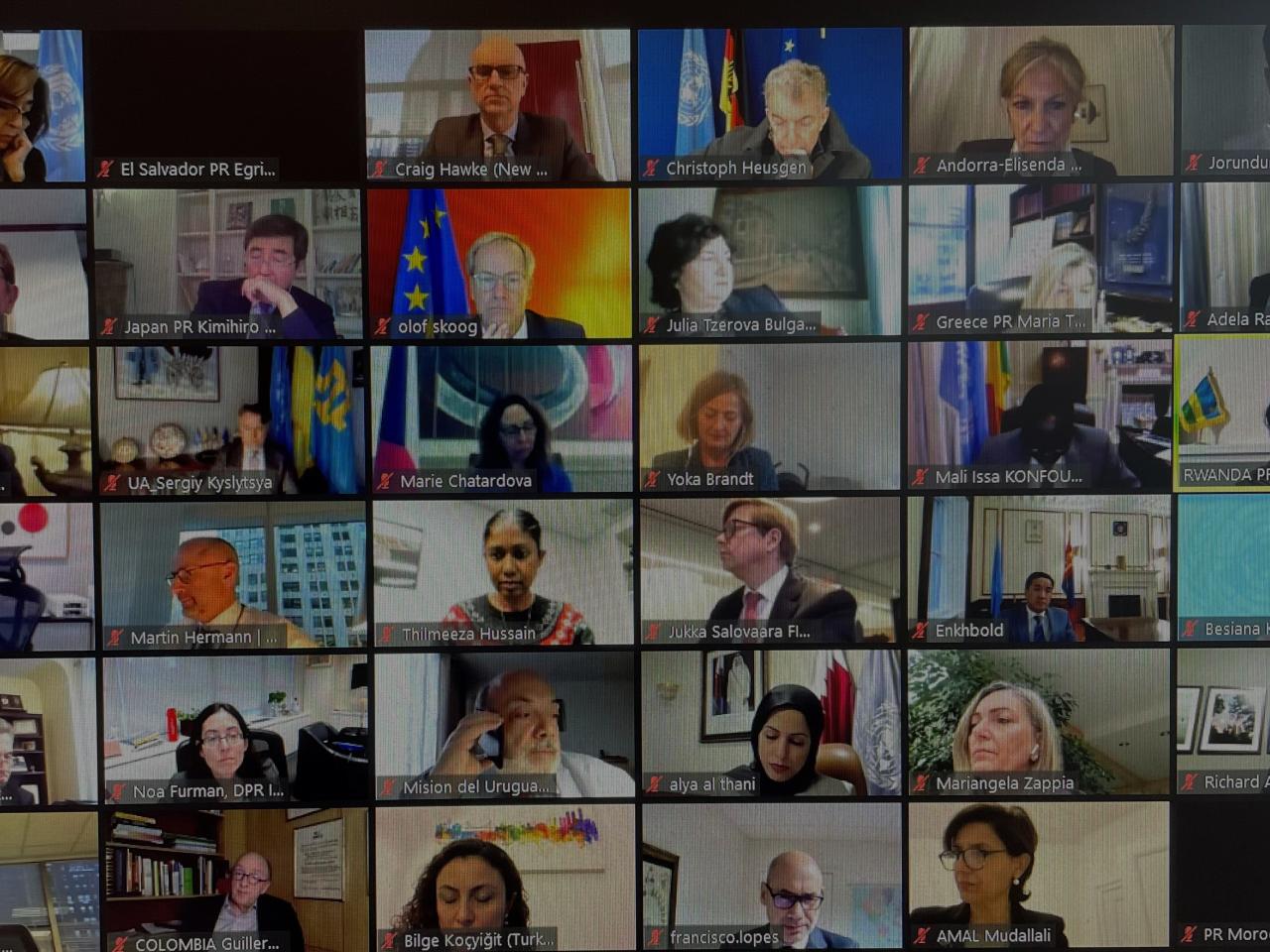Group of Friends for the Elimination Violence against Women and Girls addresses workplace harassment and violence

NEW YORK, United States - The fourth meeting of the Group of Friends for the Elimination of Violence against Women and Girls was held around the theme of the International Labour Organization (ILO) Action Week to free the world of work from violence and harassment.
The event, chaired by European Union (EU) Ambassador Olof Skoog, brought together ILO's Deputy Director-General for Policy Martha E. Newton, Convener of the NGO Coalition to End Violence and Harassment in the World of Work Anita Thomas, Fiji Ambassador and Permanent Representative (PR) to the United Nations Satyendra Prasad, and Deputy Regional Director a.i. of the UN Women Regional Office for Asia Sarah Knibbs.
In his welcome address, Mr. Skoog said that as tele-working increased during the COVID-19 pandemic, so too had online forms of violence, such as cyber harassment and bullying. He also said the true scope of the issue was not known.
“In some countries, we have seen an upsurge in online violence five-fold since the outbreak of the COVID-19 pandemic.” - ILO Deputy Director-General for Policy Martha E. Newton
“While it’s estimated that up to 80 per cent of women are at risk of sexual harassment at work, only 25 per cent report such acts and only 5 per cent complain more formally,” he said. Mr. Skoog noted that the UN was itself not immune - a system-wide survey in 2019 revealed that one in three respondents said they had been harassed at the UN.
Mr. Skoog said that these results highlighted the importance of ILO’s Violence and Harassment Convention 190 and its accompanying recommendation 206, which provides a clear roadmap for eliminating violence against women and girls in the world of work. The Convention came into force last Friday and has already been ratified by six countries.
Watch the full event above.
Ms.Newton explained that Convention 190 (C190) recognizes the right of everyone to work free from violence and harassment, including gender-based forms of violence. “In some countries, we have seen an upsurge in online violence five-fold since the outbreak of the COVID-19 pandemic,” she said. “Remote work has blurred the line between professional and personal life… For those working from home, the risk of being exposed to domestic violence has also increased.” Additionally, she said women had been hit hardest by the pandemic because they are overrepresented in informal work, and because of the increase in unpaid care work.
Ms. Thomas said that despite widespread acknowledgement of the issue, 50 countries still lack legislation granting women protection from sexual harassment in employment, highlighting the need for laws and policies to address the problem.
"Integrating women’s voices into policies, laws and programmes is absolutely critical, including those women who are survivors of violence.” - Deputy Regional Director a.i. of the UN Women Regional Office for Asia Sarah Knibbs
“Ratifying C190 will be a decisive step in the right direction,” she said. In addition to the moral and ethical case for eliminating workplace violence and harassment, she said there was a strong economic case to be made. “In a report for the Australian Human Rights Commission, Deloitte shared that in 2018 sexual harassment cost $2.6 billion in lost productivity and $0.9 billion in other financial costs.”
Fiji is the second country to have ratified C190 and Mr. Prasad said that he would be very happy to share his nation’s experiences with other countries, especially those in the Pacific Islands. “Of course, there were challenges, but it is the political will at the heart of Government that that made it possible,” he said. He also praised the convention’s thoroughness in addressing the full diversity of work — from full-time roles to informal work and internships.
Ms. Knibbs spoke about the Spotlight Initiative’s Safe and Fair Programme,which focuses on violence against migrant women workers in the ASEAN region. “Women migrant workers are at particular risk of violence,” she said. Ms. Knibbs shared some of Safe and Fair’s most impressive results, which includes providing technical support to 48 legal and policy instruments (8 of which have been adopted), supporting 105 civil society partners, strengthening the capacity of more than 21,000 workers’ skills in violence against women service provision, and reaching more than 6 million people through public campaigns and awareness work.
She ended by emphasizing the need to centre women in all action to address violence. “One of the most important things we do is ensure that the voices of women migrant workers come through and are amplified… Integrating women’s voices into policies, laws and programmes is absolutely critical, including of course, those women who are survivors of violence.”
The event concluded with statements from the representatives of Argentina, Mexico, El Salvador, Netherlands, Malta, Panama, Finland, Jamaica, Dominican Republic, Lebanon, Albania and Greece.



